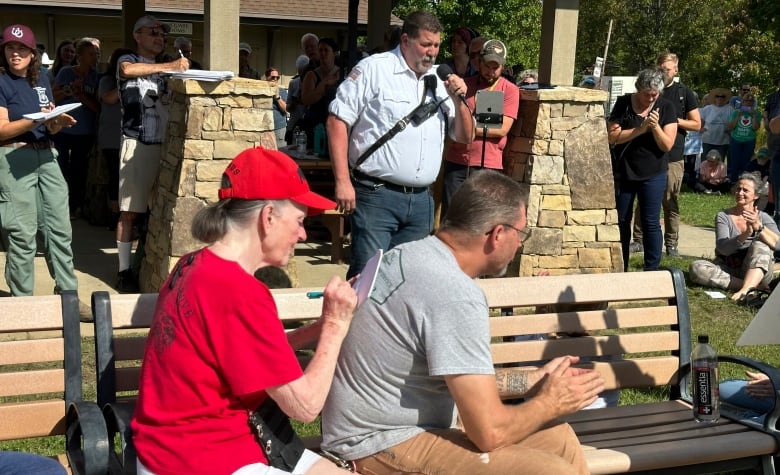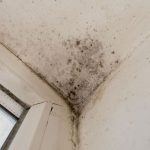Hurricane Helene’s death toll reached 200 on Thursday and could rise higher still, as searchers made their way toward the hardest to reach places in the mountains of western North Carolina, where the storm washed out roads and knocked out electricity, water and cellular service.
Officials in Georgia and North Carolina added to their states’ grim tallies, padding an overall count that has already made Helene the deadliest storm to hit the U.S. mainland since Hurricane Katrina in 2005.
While government cargo planes brought food and water to these areas and rescue crews waded through creeks searching for survivors, those who made it through the storm leaned on one another for support.

In Black Mountain, N.C., town officials have been holding daily meetings at the town square.
“It’s incredible being able to meet in person,” said Sarah Vekasi, who was cut off by impassible roads for days. More than 150 people gathered for Wednesday’s session, as local leaders stood atop a picnic table shouting updates.
Martha Sullivan took careful notes so she could share the information — roads reopened, progress in getting power and water restored — with others.

Sullivan, who has lived in Black Mountain for 43 years, said her children invited her to come to Charlotte after the storm, but she wants to look after her neighbours.
“I’m going to stay as long as I feel like I’m being useful,” Sullivan said.
Helping one another in the hardest-hit areas
In remote mountain areas, helicopters hoisted the stranded to safety while search crews moved toppled trees so they could look door-to-door for survivors.
Hundreds of people are still missing in North Carolina days after Hurricane Helene ripped across the U.S. Southeast. Andrew Chang explains why so many people are unaccounted for, and why it’s so hard for rescue teams to find them.
Electricity is being slowly restored, but nearly 900,000 customers are still without power in the Carolinas and Georgia, where Helene struck after barreling over Florida’s Gulf Coast on Sept. 26 as a Category 4 hurricane. Deaths have been reported in Florida, Georgia, Tennessee and Virginia, in addition to the Carolinas.
Robin Wynn lost power at her Asheville, N.C., home early last Friday and had to wade through knee-deep water to get to a shelter. Now that she’s back home, her neighbours have been watching out for one another, she said.

Eric Williamson, who works at First Baptist Church in Hendersonville, N.C., normally makes home visits to members who can’t physically get to church. This week, he’s their lifeline, delivering food and providing a friendly face.
He has a handwritten list of everyone he needs to visit. “They don’t have telephone service, even if they have a landline, a lot of that isn’t working,” Williamson said. “So we’re bringing them food and water, but also just bringing them a smile and a prayer with them just to give them comfort.”

Notifying relatives of people who died in the storm has been difficult in these remote areas.
With no cell service, there’s no way to reach out to next of kin, said Avril Pinder, an official in Buncombe County where at least 61 people have died. “We have a confirmed body count, but we don’t have identifications on everyone or next-of-kin notifications.”
The county doesn’t have an official tally of people who are unaccounted for or missing, but they’re still finding people, she said.
“We know we have pockets of people who are isolated due to landslides and bridges out.”

Biden and Harris get a firsthand look
U.S. President Joe Biden flew over the devastation in North and South Carolina on Wednesday, getting a firsthand look at the mess left by the storm.
The federal government has committed to footing the bill for debris removal and emergency protective measures for six months to address the various impacts of landslides and flooding.

“We’re not leaving until you’re back on your feet completely,” Biden said.
Vice-President Kamala Harris travelled to neighbouring Georgia, where the federal government is covering costs for similar emergency aid for three months.
Biden plans on travelling to disaster areas in Florida and Georgia on Thursday.

The hurricane has left a path of destruction from Florida to Tennessee, with officials and residents in those states still grappling with the aftermath as well.
Tennessee state authorities said they are investigating the company that owns a plastics factory after some employees said they weren’t allowed to leave in time to avoid the storm’s impact when it struck last week. Floodwaters swept 11 workers away, and only five were rescued. Two are confirmed dead.







